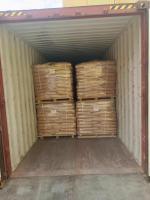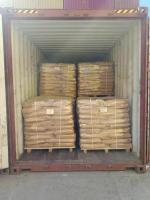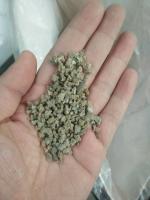Main Applications of Superabsorbent Polymers (SAPs)
Superabsorbent polymers (SAPs) are synthetic materials known for their remarkable ability to absorb and retain large amounts of liquid relative to their own weight. These polymers have a unique property of swelling when in contact with water or aqueous solutions, enabling them to store substantial amounts of liquid. Due to their high absorbency and swelling capacity, SAPs are widely used across a variety of industries, ranging from personal care and hygiene to environmental management and agriculture. This article delves into the main applications of SAPs, focusing on their use in hygiene products, agriculture, wastewater treatment, food packaging, and more.
1. Hygiene and Personal Care Products
One of the most significant and well-established applications of SAPs is in hygiene products. The ability of SAPs to absorb moisture quickly and lock it away makes them essential components in products such as baby diapers, adult incontinence products, sanitary napkins, and feminine hygiene products.
-
Baby Diapers: In baby diapers, SAPs play a critical role in absorbing and retaining urine. They help ensure that the diaper stays dry and comfortable by absorbing large amounts of liquid and turning it into a gel-like substance. The use of SAPs helps prevent leakage and reduces the risk of skin irritation or rashes, providing a more comfortable and hygienic environment for babies.
-
Adult Incontinence Products: Similar to baby diapers, SAPs are used in adult incontinence products such as pads, briefs, and pull-ups. These products are designed for individuals with bladder control issues, and SAPs help absorb urine while preventing leakage. The polymers in adult incontinence products ensure dryness and comfort, which are vital for the dignity and well-being of users, especially the elderly or those with medical conditions.
-
Sanitary Napkins and Feminine Hygiene Products: SAPs are a key component in sanitary napkins, tampons, and panty liners, where they are used to absorb menstrual fluids. The polymers provide high absorbency, helping to keep the wearer dry and comfortable during menstruation. By locking away fluid in a gel form, SAPs prevent leaks and ensure that the product remains discreet and effective.
-
Post-Surgery and Medical Pads: In addition to regular hygiene products, SAPs are used in medical pads and post-surgery pads. These pads help absorb bodily fluids, including blood and exudates from wounds, reducing the risk of infection and promoting healing. By maintaining a dry surface and reducing moisture exposure to the skin, SAPs also help prevent skin irritation and discomfort.
2. Agriculture and Horticulture
SAPs are also widely used in agriculture and horticulture to improve water retention in soil, enhance plant growth, and reduce the need for frequent irrigation. These polymers are particularly useful in arid or drought-prone regions, where water conservation is a significant concern.
-
Soil Moisture Retention: One of the most common agricultural applications of SAPs is in increasing the water-holding capacity of the soil. SAPs can absorb and retain large amounts of water, which is then gradually released back into the soil, providing consistent moisture to plants over time. This is particularly valuable in regions where water availability is limited, as it reduces the frequency of irrigation and conserves water.
-
Hydroponics and Container Gardening: In hydroponics (soil-free farming) and container gardening, SAPs are used to retain moisture in the growing medium. These polymers help ensure that plants have a steady supply of water and nutrients, even in environments where traditional soil-based farming methods are not viable. SAPs improve the efficiency of water use and make gardening easier and more sustainable.
-
Mulching: SAPs are sometimes incorporated into mulching materials to help conserve moisture in the soil. When added to mulch, SAPs absorb excess water during irrigation or rainfall and release it gradually, reducing evaporation and maintaining optimal moisture levels for plant growth. This application is particularly useful for crops that are sensitive to water stress.
-
Seedling and Transplant Support: SAPs are also used in seedling propagation and transplanting operations. When seedlings are moved to new soil or containers, the addition of SAPs helps prevent transplant shock by maintaining consistent moisture levels around the roots. This improves the likelihood of successful establishment and growth.
3. Wastewater Treatment and Environmental Management
SAPs are valuable tools in environmental management, especially in wastewater treatment and pollution control. Their ability to absorb water and other liquids makes them useful for dewatering sludge, cleaning up oil spills, and managing industrial waste.
-
Sludge Dewatering: In municipal and industrial wastewater treatment plants, SAPs are used to dewater sludge. The polymers absorb water in the sludge, turning it into a gel-like substance that is easier to handle and dispose of. This process helps reduce the volume of wastewater sludge and makes it more manageable, improving the efficiency of wastewater treatment systems.
-
Oil Spill Cleanup: SAPs are highly effective in absorbing oils and hydrocarbons, which makes them useful for environmental cleanup, particularly in oil spill response efforts. The polymers can quickly absorb large quantities of oil, preventing it from spreading and minimizing the impact on marine and terrestrial ecosystems. SAPs are often deployed in combination with other materials like absorbent pads or booms to contain and remove the oil.
-
Oil and Gas Industry Wastewater Treatment: In the oil and gas industry, SAPs are used to treat wastewater generated during extraction and drilling operations. The wastewater often contains oils, chemicals, and other contaminants, and SAPs help absorb excess water and separate contaminants, improving the quality of effluent before it is released back into the environment.
-
Contaminated Soil Remediation: SAPs are also employed in the remediation of contaminated soil. They can absorb and isolate harmful substances, such as heavy metals, chemicals, or oils, from polluted soil or water. This makes it easier to treat and remove contaminants, reducing the environmental impact of industrial activities and improving land quality.
4. Food Packaging and Preservation
In the food industry, SAPs are used to improve the packaging and preservation of perishable products. Their ability to absorb moisture helps extend the shelf life of food by reducing the growth of bacteria and mold, which thrive in moist environments.
-
Meat and Poultry Packaging: SAPs are commonly used in the packaging of meat and poultry products. These items tend to release moisture during storage, which can lead to spoilage or bacterial growth. SAPs are incorporated into packaging materials, such as absorbent pads, to absorb excess moisture, keeping the product dry and fresher for a longer period.
-
Produce Packaging: Fresh fruits and vegetables are often packaged with absorbent materials that help control moisture levels. SAPs are used in produce packaging to absorb the moisture released by fruits and vegetables, which can reduce wilting, extend freshness, and reduce spoilage. This application helps improve the quality of produce during transport and storage.
-
Absorbent Pads for Food: SAPs are also found in absorbent pads used in food packaging, particularly for seafood, meats, and prepared foods. These pads are designed to absorb any excess liquid or moisture that may accumulate within the packaging, ensuring that the food product remains fresh and free from excess water that could impact texture and flavor.
5. Construction and Civil Engineering
In construction and civil engineering, SAPs are used in a variety of applications where moisture control and water management are crucial. Their ability to absorb water and release it gradually makes them useful for concrete curing and soil stabilization.
-
Concrete and Cement: SAPs are sometimes added to concrete mixtures to control the moisture content during the curing process. By absorbing excess water, SAPs help prevent cracking and shrinkage, resulting in stronger and more durable concrete. This application is particularly important in areas with hot climates, where rapid evaporation of water from concrete can lead to cracks and weakened structures.
-
Soil Stabilization: SAPs are also used in soil stabilization, particularly in regions with sandy or loose soils. The polymers help to improve the water retention capacity of the soil, reducing the risk of erosion and improving its load-bearing capacity. This application is important for the construction of roads, foundations, and other infrastructure projects in areas where soil conditions are less than ideal.
6. Medical and Pharmaceutical Applications
Superabsorbent polymers are also used in medical and pharmaceutical applications, particularly in wound care and drug delivery systems.
-
Wound Care and Dressings: SAPs are incorporated into wound dressings, bandages, and gauze to absorb exudates (fluid that leaks from wounds). The polymers maintain a moist environment around the wound, which is essential for healing. By absorbing excess fluid and preventing bacterial growth, SAPs promote faster healing and reduce the risk of infection.
-
Drug Delivery Systems: SAPs are used in controlled drug delivery systems to release medications over time. These polymers absorb body fluids and slowly release the drug, ensuring a consistent therapeutic effect. This controlled release can improve the efficacy of treatments, reduce side effects, and enhance patient compliance with long-term therapy.
Conclusion
Superabsorbent polymers are highly versatile materials with a wide range of applications across various industries. From hygiene products and agriculture to wastewater treatment and environmental management, SAPs offer solutions that improve efficiency, sustainability, and user experience. Their ability to absorb and retain large amounts of liquid makes them indispensable in many sectors, and as technological advancements continue, their applications are likely to expand even further. The broad usage of SAPs is a testament to their practical benefits and the growing need for effective moisture management in diverse fields.






